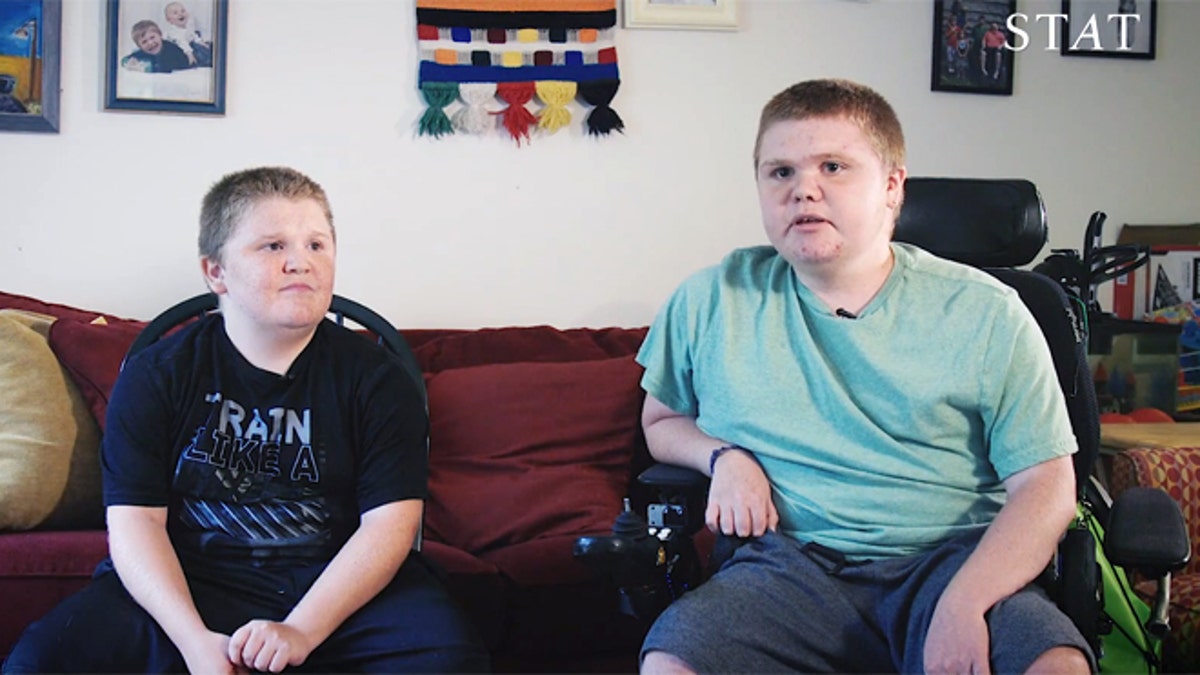
Max and Austin Leclaire have Duchenne muscular dystrophy, a rare degenerative disease that wastes their muscles. (STAT)
Max and Austin Leclaire have lived a lot of hard days together. The brothers have Duchenne muscular dystrophy, a rare degenerative disease that wastes their muscles and will likely take their lives at an early age.
Over the last few years, they found glimmer of hope in an experimental drug, called eteplirsen. Max was able to get on the drug in 2011. Austin started on it three years later in another clinical trial. Both boys believe it has helped slow their physical decline. And Max has remained able to walk, although not easily, beyond the age when boys with Duchenne usually lose the use of their legs.
The company that developed the drug, Sarepta Therapeutics, has been pushing hard for federal approval to take it to market. It doesn’t have a lot of hard data that it works; in part because Duchenne muscular dystrophy is so rare, Sarepta presented data on just a handful of patients to the Food and Drug Administration.
Scientists at the FDA were deeply divided, but on Monday, the agency finally approved the drug. It’ll be available within a few months, at an estimated price of $300,000 a year.
The approval pleased Max, 14, and Austin, 17. And not just because they hope to keep taking the drug.
“It was a pretty big relief,” Austin said, “but I was more worried about the other kids, that if it didn’t get approved, they wouldn’t have a chance.”
